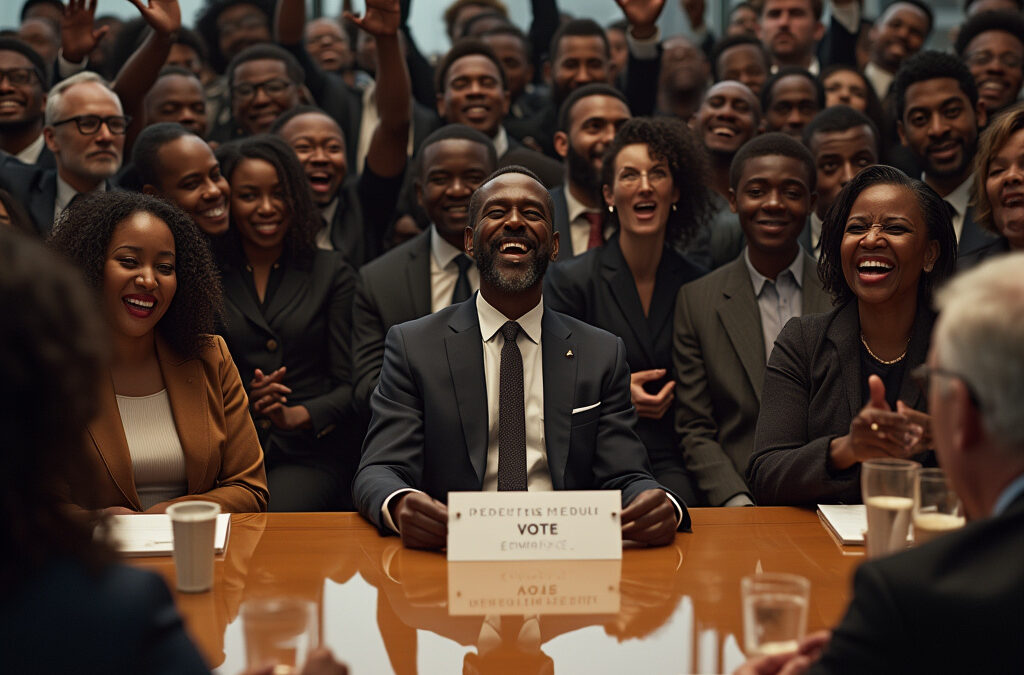Apple Shareholders Reject Proposal to Scrap Diversity Programs
In a resounding show of support for diversity, equity, and inclusion (DEI) initiatives, Apple shareholders have overwhelmingly rejected a proposal to eliminate the company’s diversity programs. The decision, made during a recent shareholders’ meeting, underscores the tech giant’s commitment to fostering an inclusive workplace culture.
The proposal, introduced by the National Center for Public Policy Research, a conservative think tank, argued that DEI programs pose legal, reputational, and financial risks. It urged Apple to follow the lead of companies that have scaled back their DEI efforts under pressure from the Trump administration. However, the measure failed to gain traction, with a staggering 97% of shareholders voting against it.
Apple’s leadership has long championed DEI initiatives, with CEO Tim Cook emphasizing that a diverse workforce is not only a moral imperative but also a strategic business advantage. The company’s board of directors had recommended voting against the proposal, calling it “unnecessary” and an overreach that could hinder Apple’s ability to manage its operations effectively.
The vote places Apple in a growing camp of companies that are doubling down on DEI despite shifting political winds. Retail giant Costco, for instance, recently rejected a similar anti-DEI proposal, signaling a broader resistance to rollback efforts. However, not all major tech companies have followed suit. Firms like Meta, Alphabet, and Microsoft have scaled back their DEI programs, reflecting a divided corporate landscape.
The outcome of Apple’s shareholder vote comes amid a changing national landscape for DEI initiatives. In January, President Donald Trump signed an executive order ending DEI programs in the federal government, prompting some private companies to reevaluate their policies. Yet, Apple has chosen to stand its ground, reaffirming its commitment to creating a culture of inclusion and increasing representation across its teams.
While Apple remains steadfast in its DEI commitment, Cook has acknowledged that the company may need to adapt its diversity programs as the legal and regulatory environment evolves. “We believe in a culture of belonging,” Cook stated, “and we’ll continue to strive for it, even as the legal landscape changes.” This approach has been central to Apple’s success, contributing to its current market value of $3.7 trillion.
For now, Apple’s shareholders have made their stance clear: diversity, equity, and inclusion are not just values but vital components of the company’s future. As the debate over DEI continues to unfold, Apple’s decision serves as a powerful statement about the enduring importance of these initiatives in corporate America.
Apple Shareholders Reject Proposal to Scrap Diversity Programs
The proposal to eliminate Apple’s diversity programs was introduced by the National Center for Public Policy Research, a conservative think tank. The group argued that DEI initiatives pose significant risks, including litigation, reputational damage, and financial losses. They urged Apple to align with companies that have reduced their DEI efforts under pressure from the Trump administration.
Apple’s board of directors strongly recommended voting against the proposal, deeming it unnecessary and an inappropriate attempt to interfere with the company’s operational strategies. The board emphasized that such constraints could hinder Apple’s ability to effectively manage its teams and business operations.
Apple’s stance is in contrast to companies like Meta, Alphabet, and Microsoft, which have scaled back their DEI programs. However, Apple joins Costco, which recently rejected a similar anti-DEI proposal, signaling a growing resistance against such rollbacks in the corporate world.
The decision highlights Apple’s commitment to DEI amidst a shifting legal landscape. CEO Tim Cook has underscored the importance of a culture of belonging, which he believes has significantly contributed to Apple’s success and its current market value of $3.7 trillion.
Conclusion
The overwhelming rejection of the proposal to scrap Apple’s diversity programs underscores the company’s and its shareholders’ unwavering commitment to diversity, equity, and inclusion. Apple’s leadership, particularly CEO Tim Cook, has consistently emphasized the strategic and moral importance of fostering an inclusive workplace culture. This decision not only solidifies Apple’s position as a leader in DEI initiatives but also serves as a powerful statement about the enduring value of these programs in driving business success and creating a culture of belonging.
Frequently Asked Questions (FAQs)
Why was the proposal to scrap Apple’s diversity programs introduced?
The proposal was introduced by the National Center for Public Policy Research, a conservative think tank, which argued that DEI programs pose legal, reputational, and financial risks. They urged Apple to align with companies that have scaled back their DEI efforts under pressure from the Trump administration.
How did Apple’s shareholders respond to the proposal?
Apple’s shareholders overwhelmingly rejected the proposal, with 97% voting against it. This demonstrates strong support for the company’s DEI initiatives and its commitment to fostering an inclusive workplace culture.
What was Apple’s leadership stance on the proposal?
Apple’s leadership, including CEO Tim Cook, has long championed DEI initiatives. Cook emphasized that a diverse workforce is both a moral imperative and a strategic business advantage. The company’s board of directors recommended voting against the proposal, calling it “unnecessary” and an overreach that could hinder Apple’s ability to manage its operations effectively.
What does this decision mean for Apple’s future?
The decision reaffirms Apple’s commitment to DEI and signals its intention to continue fostering a culture of inclusion. Cook has acknowledged that the company may need to adapt its diversity programs as the legal and regulatory environment evolves, but the core commitment to DEI remains unchanged.
How does Apple’s stance compare to other major tech companies?
While Apple has chosen to stand its ground on DEI, other major tech companies like Meta, Alphabet, and Microsoft have scaled back their DEI programs. However, Apple joins Costco in rejecting anti-DEI proposals, signaling a growing resistance to rollback efforts in the corporate world.

